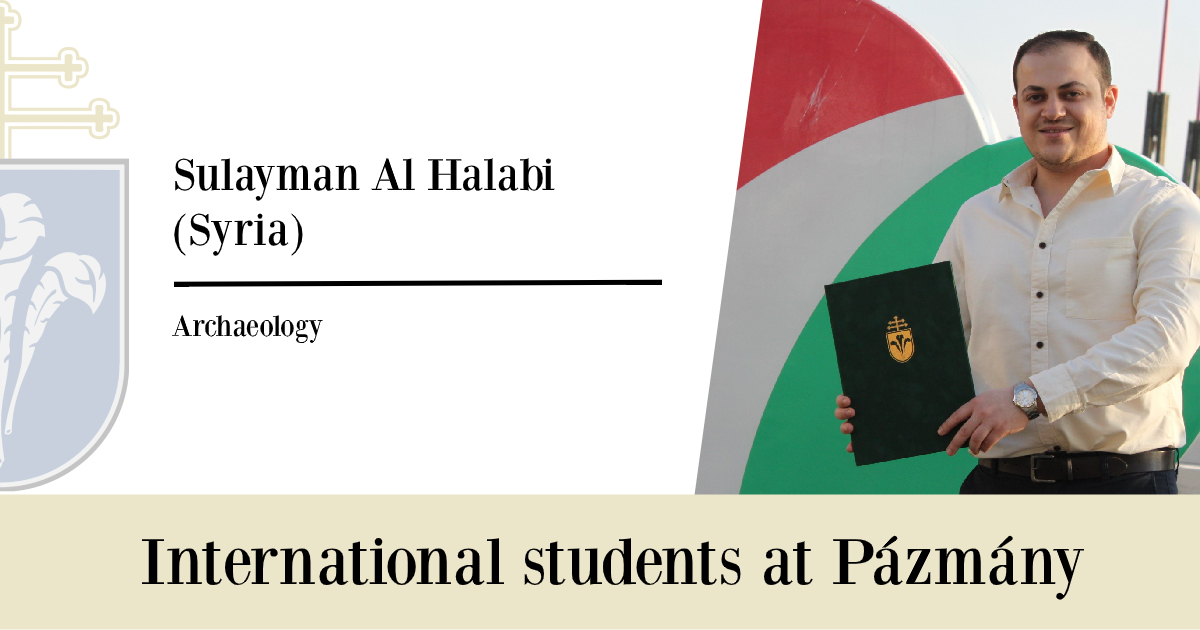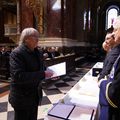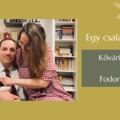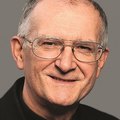
Sulayman Al Halabi is from Syria. He got his Master degree in Archaeology at Pázmány Péter Catholic University, Faculty of Humanities and Social Sciences, then he continued his doctoral studies there. Meanwhile he was also a member of the Syro-Hungarian Archaeological Mission. His goal is to play an effective role in archaeology and numismatics and add significant value to the community and economy through his study and researches.
Please, tell us about yourself.
I am Sulayman Al Halabi from Syria. I am a teacher assistant at Damascus University-Department of Archaeology. I have obtained a Master degree in Archaeology from Pázmány Peter Catholic University in 2018 and in the same year I was accepted by the Stipendium Hungaricum scholarship to continue my study in the Archaeological Program of the Doctoral School of History at PPCU. Now I am in the third academic year of the PhD.
There are several universities in Hungary. Why did you choose to come to Hungary and to Pázmány?
Pázmány Péter Catholic University operates the Syro-Hungarian Archaeological Mission in cooperation with the Directorate General of Antiquities and Museums in my home country. It has been constantly working in al-Marqab citadel for more than a decade with dozens of Syrian and Hungarian experts and students. I had the chance to meet them in Syria and I later became a member in 2017. I would like to thank all the members for the enthusiastic work especially Dr. Major Balázs the director of the mission in al-Marqab and Crac Des Chevaliers Citadels. I got more information about Hungary and the great progress reached in all fields, especially archaeology and history. Also, the Hungarians archaeologists have an excellent scientific reputation. I chose the PPCU to get the best possible training and academic supervision.
How do you like Pázmány Péter Catholic University? Have your expectations been fulfilled?
Actually, it is an honour to study at PPCU and most of the expectations that were in my mind have come true in one of the oldest and the most prestigious institutions of higher education in Hungary. Moreover, the University is amazing and diverse with its four Faculties on many campuses and they are all located in the heart or the vicinity of the capital city of Hungary.
Do you enjoy studying here? What is the best thing about PPCU?
Yes sure, it is really a great experience. All the researches and the activities that I have been to, during my study in here, have given me the chance to meet people from other countries and gain new experiences and various cultures. Besides, the teachers here are excellent, competent, very friendly, helpful and so cooperative.
There is also an amazing library in the Faculty of Humanities that contains around 300,000 volumes in both Hungarian and other foreign languages.
What are the biggest differences you see between the university experience here and in your home country?
Both of them have excellent competent professors and teachers, but each one foloows a different academic system in education. One of the biggest differences between the two universities is using modern and technological methods and applying them in the restoration and archaeology in PPCU.
What has your experience here helped you to gain and learn?
Exploring, understanding, researching, and designing for almost five consecutive years at the Faculty of Humanities and Social Sciences, PPCU has empowered me to gain the required knowledge in various aspects of archaeology along with theoretical and practical conceptions in this field. I have benefited of all the knowledge and education that I have come through so far. In addition, working as a researcher in the Coin Cabinet of the Hungarian National Museum with all the encouragement, help and support from the dirctor Dr. Torbágyi Melinda and all the staff there, gave me a lot of experience about medieval numismatics.
I owe deep gratitude to my supervisor Dr. Péter Langó for all the help and support. He made my task easy and sacrificed considerable time in assisting me.
What would be your advice to your first year self?
To be successful, you have to see each day as an opportunity to improve, to be better, to get a little bit closer to your goals. The success is no accident but is the result of hard work perseverance, devoted studying, determination and sacrifice, and above all, love what you are doing or learning and working on. So as long as you have the hunger for success, you will always have the power within you to achieve it.
As Alexander the Great said, "There is nothing impossible to him who will try."
What has the Stipendium Hungaricum scholarship helped you to achieve?
I am really grateful to the Stipendium Hungaricum Scholarship because it helped me to achieve my goals and made a big difference in my education. It granted me the time and space without the financial pressures of supporting myself full-time, to enhance my skills, in increasing my education and my career opportunities.
How do you enjoy Hungary? What do you like the most? What was the most suprising thing?
I enjoy living and studying here, the rich architectural heritage is amazing and the capital Budapest is one of the most beautiful cities I have ever seen The view of the city is fantastic from several points. The light of the town from the Danube river is really breathtaking during the night. There’s a lot to see in Budapest and there are several different districts to explore. Hungary has one of the most important thermal spring cultures in Europe also preserving Turkish architecture in it.
I like Hungarian history, it is very interesting for me. The foundations of the Hungarian state were established in the late 9th century by the Hungarian grand prince Árpád following the conquest of the Carpathian Basin. His great-grandson Stephen I ascended the throne in 1000, converting his realm to a Christian kingdom. The Kingdom of Hungary was one of the largest states in Europe, bigger than France. By the 12th century, Hungary became a regional power, reaching its cultural and political height in the 15th century. During the time of King Matthias Corvinus (1456-1490) Hungary was appreciated in Europe as a great power. Buda became the capital of renaissance culture, and his royal library The Bibliotheca Corviniana was one of the important collection of books in Europe.
The most surprising new information for me was that Hungarians have won 13 Nobel Prizes since 1905. And the Hungarians have won more than 465 Olympic medals.
What were your first impressions here?
When I went to this university, I was very positive. Apprehensive in being in a place on my own hundreds of miles from home, I couldn’t believe I was finally at PPCU. It was full of new things, opportunities, and people to meet. The whole experience was very exciting. For the first few weeks, everything was strange, but having made a few acquaintances, I was able to adapt to the new community.
Do you miss anything from your home country, from your hometown?
I miss all my homeland Syria, my family, my friends, the language, the foods, my career, the simplicity of life there, and so many other things.
Have you learned any Hungarian words yet?
Hungarian language is one of the hardest languages in the world. It is not an Indo-European language, is truly unique and nothing like the other European languages. When I arrived here one of my goals was to speak Hungarian fluently and confidently in everyday situations with colleagues, friends, and the ordinary people. Right now I am speaking Hungarian, I will finish soon B1 level and continue to B2 level. I will reach one of my goals having faced all the challenges of the Hungarian language.
What is a goal of yours?
My professional goal is to play an effective role in archaeology and numismatics, and add significant value to the community and economy through my study and researchs.
What will you take home from Hungary? What would be your message to students in your home country thinking about studying abroad?
I do wish to come back to my homeland and apply new ideas, skills and researches in the field of archaeology and numismatics.
Studying abroad is truly a life-shifting experience. There are personal, academic, and even career benefits of studying abroad. It’s a chance to try something totally new and interesting.
You’ll learn more about yourself, discover new interests, you know much about other cultures, as well as, sharing stories and ideas with people from a different culture will help understanding their values and traditions. When you study abroad, you come home with a wealth of knowledge.
My message to students in my home country about studying abroad is that I encourage everyone who considers applying for a scholarship to go for it as soon as possible and never stop.
___________________________________________
Sulayman Al Halabi Szíriából érkezett. A régészettudományi mesterszakos képzést a Pázmányon végezte, majd ugyanitt folytatta doktori tanulmányait és tagja volt egyetemünk Szíriai-Magyar Régészeti Missziójának. Célja, hogy komoly szerepet töltsön be a régészetben és a numizmatikában, tanulmányai és kutatásai révén pedig jelentős értéket teremtsen a közösség és a gazdaság számára.
Kérem, röviden mutatkozzon be.
Sulayman Al Halabi vagyok, Szíriából érkeztem. Tanársegéd vagyok a Damaszkuszi Egyetem Régészeti Tanszékén. A Pázmány Péter Katolikus Egyetem Bölcsészet- és Társadalomtudományi Karán régészettudományi mesterszakos képzést végeztem 2018-ban és ugyanebben az évben Stipendium Hungaricum ösztöndíjjal folytattam a doktori tanulmányaimat a Pázmány Történelemtudományi Doktori Iskolájának régészeti programjában, ahol most vagyok harmadéves.
Számos egyetem van Magyarországon, miért döntött úgy, hogy ide jön, miért a Pázmányt választotta?
A Szíriai Régészeti Főigazgatóság és a Pázmány Péter Katolikus Egyetem együttműködésével működő Szíriai-Magyar Régészeti Misszió több mint egy évtizede folyamatosan dolgozik Margat várában, több tucatnyi szíriai és magyar szakértő és hallgató részvételével. Évekkel ezelőtt találkoztam velük és 2017-től tagja lettem a Missziónak. Itt szeretnék köszönetet mondani a misszió minden tagjának a lelkes munkáért, különösképpen Dr. Major Balázsnak, a Margati feltárások és a Crac des Chevaliers projekt vezetőjének.
Abban az időben sok ismeretet szereztem Magyarországról és az összes területen elért nagy fejlődésről, különös tekintettel a régészetre és a történelemre. Emellett a magyar régészek kiváló tudományos hírnévvel rendelkeznek.
A Pázmányt választottam, hogy minél jobb képzést és akadémiai támogatást kaphassak.
Hogy tetszik a Pázmány Péter Katolikus Egyetem? Teljesültek az elvárásai?
Valójában megtisztelő a Pázmányon tanulni és a bennem megfogalmazott elvárások nagy része Magyarország egyik legrégebbi és legrangosabb felsőoktatási intézményében teljesült. Ezenkívül az egyetem igen színes a négy karának három kampuszával, melyek mind Magyarország fővárosának szívében vagy közelében találhatók.
Szeret itt tanulni? Mi a legjobb dolog a Pázmányon?
Igen, valóban nagy élmény. Az összes kutatás és tevékenység, amelyben részt vettem az itteni tanulmányom során, lehetőséget adott arra, hogy más országokból származó emberekkel ismerkedjek meg és új tapasztalatokat szerezzek, valamint, hogy különféle kultúrákat ismerjek meg. Ezenkívül az itteni tanárok kiválóak, kompetensek, nagyon barátságosak, segítőkészek és együttműködőek.
A Bölcsészet- és Társadalomtudományi Karnak van egy csodálatos könyvtára, amely mintegy 300.000 kötetből áll mind magyar, mind pedig idegen nyelveken.
Melyek a legnagyobb különbségek az itteni és az otthoni egyetemi élet között?
Mindkettőben kiváló, hozzáértő professzorokkal és oktatókkal találkozni, de más akadémiai rendszerű az oktatásuk. Az egyik legnagyobb különbség a két egyetem között, az a Pázmányon rendelkezésre álló modern technológiai módszerek és azok alkalmazása a régészetben és restaurálásban.
Az itteni tapasztalata mit tanított Önnek?
A Bölcsészet- és Társadalomtudományi Karon majdnem öt egymást követő éven át tartó felfedezés, megértés, kutatás és tervezés képessé tesz arra, hogy ezen a téren elméleti és gyakorlati képzésekkel együtt megszerezzem a szükséges ismereteket a régészet különféle vonatkozásaiban. Kihasználhatom mindazt a tudást és oktatást, amelyet eddig átéltem. Illetve amikor kutatóként dolgoztam a Magyar Nemzeti Múzeum Éremtárában, sok támogatást kaptam és Dr. Torbágyi Melinda igazgató valamint munkatársai segítségével sok tapasztalatot szereztem a középkori numizmatikáról.
Mély hálával tartozom témavezetőmnek, Dr. Lángó Péternek minden segítségért és támogatásért, megkönnyítette a dolgomat és jelentős időt áldozott arra, hogy engem képezzen.
Mi lenne a tanácsa az elsőéves önmagának?
A siker érdekében minden nap keresni kell a lehetőséget, hogy fejlődjünk, hogy jobbá váljunk, hogy egy kicsit közelebb kerüljünk céljainkhoz. A siker nem a véletlen műve, kemény munka, kitartás, odaadás, tanulás, elszántság és áldozat eredménye. Mindenekelőtt szeretni kell, amit csinálsz, vagy tanulsz, és amin dolgozol. Amíg a sikeréhséged megvan, mindig meglesz az erő annak eléréséhez.
Ahogy Nagy Sándor mondta: „Semmi sem lehetetlen annak, aki megpróbálja.”
Mit segített elérni a Stipendium Hungaricum ösztöndíjprogram?
Nagyon hálás vagyok a Stipendium Hungaricum ösztöndíjért, mert segített a céljaim elérésben és abban, hogy nagy minőségi változás álljon be a képzésemben. Időt és teret biztosított pénzügyi nyomás nélkül, hogy teljes munkaidőben fejlesszem a képességeimet, magasabb iskolai végzettségem legyen és karrierlehetőségeket kapjak.
Hogy tetszik Magyarország? Mit szeret a legjobban? Mi volt a legmeglepőbb?
Élvezem, hogy itt élek és tanulok, a gazdag építészeti örökség csodálatos, a főváros pedig az egyik legszebb város, amit valaha láttam. A város látványa több szempontból is fantasztikus, fényei a Duna felől például igazán lélegzetelállítóak éjszaka. Sok látnivaló van Budapesten és számos különböző kerületet lehet felfedezni. Magyarországnak van Európa egyik legfontosabb termálforrás kultúrája, sok oszmán kori építészeti maradvánnyal.
Szeretem a magyar történelmet, számomra nagyon érdekes. A magyar állam alapjait a 9. század végén rakta le Árpád magyar fejedelem a Kárpát-medence meghódítását követően. Dédunokája, I. István 1000-ben lépett trónra, országát keresztény királysággá változtatva. A Magyar Királyság Európa egyik legnagyobb állama volt, nagyobb, mint Franciaország. A 12. századra Magyarország regionális hatalommá vált, kulturális és politikai csúcsát a 15. században érte el. Mátyás király (1456-1490) idején Magyarországot nagyhatalomként értékelték Európában, Budapest a reneszánsz kultúra fővárosává vált, a Bibliotheca Corviniana királyi könyvtár pedig Európa egyik legnagyobb könyvgyűjteménye volt.
A legmeglepőbb új információ számomra az volt, hogy a magyarok 1905 óta 13 Nobel-díjat kaptak és sportolóik több mint 465 olimpiai érmet nyertek.
Mi volt az első benyomása itt?
Amikor erre az egyetemre jártam, nagyon pozitív voltam. Először félelmetes volt, hogy az otthonomtól több száz mérföldre lakom, és azt sem hittem el, hogy végre a Pázmányon vagyok. Viszont tele volt új dolgokkal, lehetőségekkel és találkozási lehetőségekkel. Az egész élmény nagyon izgalmas volt. Az első hetekben minden furcsa volt, de miután néhány új ismeretséget szereztem, alkalmazkodni tudtam az új közösséghez.
Hiányzik valami a hazájából, a szülővárosából?
Hiányzik minden a szülőföldemről, Szíriából, a családom, a barátaim, a nyelv, az ételek, a karrierem, az ottani élet egyszerűsége és még sok minden más.
Sikerült megtanulnia valamilyen magyar szót?
A magyar nyelv az egyik legnehezebb nyelv a világon. Ez nem indoeurópai nyelv, valóban egyedi és a többi európai nyelvhez nem fogható.
Amikor megérkeztem, az volt a célom, hogy a mindennapi helyzetekben folyékonyan és magabiztosan beszéljek magyarul kollégáimmal, barátaimmal és az emberekkel. Most éppen magyarul beszélek. Hamarosan befejezem a B1 szintet és folytatom a B2 szintet. Ezzel teljesítem az egyik célomat, úgy, hogy közben szembesülök a magyar nyelv összes kihívásával.
Milyen céljai vannak?
Szakmai célom, hogy komoly szerepet töltsek be a régészetben és a numizmatikában, tanulmányaim és kutatásaim révén pedig jelentős értéket teremtsek a közösség és a gazdaság számára.
Mit fog hazavinni Magyarországról? Mit üzenne a hazájában élő diákoknak a külföldi tanulmányokról?
Szeretnék visszatérni hazámba és új ötleteket, készségeket és kutatásokat alkalmazni a régészet és a numizmatika területén. A külföldön folytatott tapasztalat valóban olyan tapasztalat, ami megváltoztatja az életet. A külföldi tanulmányoknak személyes, tudományos és akár karrierelőnyei is vannak. Ez egy esély arra, hogy kipróbáljanak valamit, ami teljesen új és érdekes.
Aki külföldön tanul többet fog tudni magáról, új érdeklődési irányokat alakíthat ki, sokat megtudhat más kultúrákról, valamint a történetek és ötletek megosztása más kultúrájú emberekkel segít megérteni értékeiket és hagyományaikat. Amikor külföldön tanulunk, rengeteg új tudással térünk haza.
Hazám diákjait, akik fontolgatják az ösztöndíjra való jelentkezést, mindenképp bátorítom a külföldi tanulmányokra. Kezdjék el, amint lehet és soha ne hagyják abba.
Készítette: PPKE Kommunikáció/Kemény Mária
Fotó: Sulayman Al Halabi



